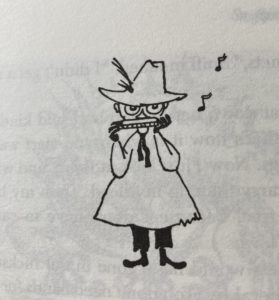For the past nine years, I have been part of a community of people, a collection of raggle-taggle thinkers and explores who have read together and talked together and journeyed together. When I was invited into this family, it operated under the title The Post-structural Reading Group. These folk immersed me in theory and thought. We spent a year or so working through Foucault’s Order of Things. Each month we sat in a group, shook our heads, sucked on our lips, and said things like ‘Well, no – I don’t know what he means there either!’. We were consoled that this thinking business was hard. The group changed; people came, others went. We celebrated successes, and we commiserated in disappointments. Sometime we shared lunch too! Reading Foucault led us to new places in our thinking; we read Derrida, Baumann, Moi, Osberg, Biesta, Harraway, Springer, Chantelle Mouffe and many others. As we read, our horizons were extended, and we diverged, shifted focus; one reading led to another, that to another, and another…
We journeyed together, in the company of others. The group always had a non-hierarchical character; we created spaces within the performative neoliberal business and busyness to pause, reflect, and share our insights and our ignorances, to think freely, to engage critically with each other and with those from other places. All of this put us in encounter with theories that cut through – and often disrupted – our thinking in ways that cannot be undone. We explored together new territories that we hadn’t even known existed. Gradually the focus shifted, we were covering new ground; responses to neoliberalism, geopolitics, democracy, indigenous agency, relational understandings of place/space, post-human approaches and understandings. A couple of years ago, we began to recognise that our title no longer reflected our reality – we were no longer a post-structural reading group – perhaps at best we had become a post-post-structural reading group…We considered our identity and our future.
Were we the Emergent Theories Reading Group? That title was too static; it spoke of a reform that was complete, finished, finalised and fixed. We did not recognise ourselves in those terms…we are travellers, moving, never still for long. We recognised that where we were is not where we will always be. In terms of many of the notions and ideas that we were encountering, we were – we are – as Hannah Arendt has it, ‘newcomers’, we are ‘not finished but in a state of becoming’ (Hannah Arendt, The crisis in education. In Between past and future: Eight exercises in political thought. (New York: The Viking Press 1993): 185).
Yesterday we met again; this family of travellers. Circumstances recently have demanded that we meet virtually, that our thoughts are shared across the ether, that we Zoom into each other’s living spaces or Team into each other’s kitchens or ‘Connect on-line’ in some other way. We talked about the affordances of digitality, of the constant changes to the ways in which we communicate.

Attribution: Snufkin Image © Tove Jansson, 1946.
After we had met, I contemplated our discussions, our sense of always being in a state of becoming, and I was reminded of Tove Jansson’s Moomin character Snufkin. He is described as a ‘philosophical vagabond who wanders the world…’. He meets new people with an openness and curiosity, a willingness to learn, to further his journey of becoming. I think that is what we are doing when we meet, when we talk, when we share our insights and our ignorances; when we share our successes and our disappointments. We continue with our becoming…
We meet about monthly in term time, if you want to join us in our travels, let me know at J.Doney@Exeter.ac.uk and ask to join the Emerging Theories Reading Group. That’s where we settled for our name – something active and in disequilibriation, something that recognises our state – individually and in community – of becoming, of our individual and collective philosophical vagabondery.
